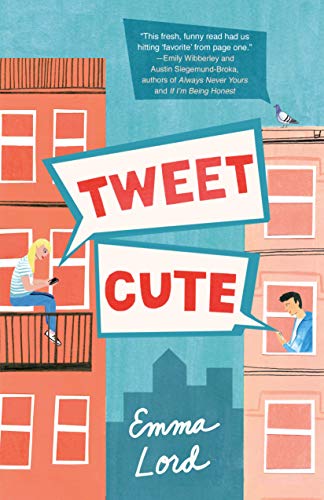“I fear for my children and the world they will inherit.”
It’s a statement many parents have made - one I sometimes have made in jest. Now, however, I make the statement in all seriousness.
I am deeply concerned about the world my children are growing up in.
As a Christian, I know who controls their future - who controls our world’s future. As a parent, educator, and advocate for children, I also believe God has given me a platform and is calling on me to use it wisely and bravely.
This world of masks, fear, skepticism, arguments, and isolation is not a world where children (particularly our elementary-aged) will thrive. This world is one that will crush their spirits, creativity, and humanity.
And while I hear “children are resilient - they are capable of so much more than we give them credit for” - I disagree. Children are resilient - to a point. Adults say children are resilient to absolve themselves of guilt. Children need our protection and care. They need us to be their advocates. They need us make decisions based on careful study and prayer - NOT based on the latest news story.
I’m not sure WHAT the answer is, and I’m trying to process the events of each day just like the rest of you.
After working with a small group of children the past few Sundays, I have become alarmed at the changes I am seeing (already!). I have learned quite a bit about children over the years - through my degrees in education, time spent as a classroom educator, my 19 years as a mother, time as a homeschooling mother, and now once again in my role teaching children in different capacities.
What we’re doing now in response to the current health crisis is not right, and we must consider what we know to be true about children and their development as we move forward.
Children Don’t Understand Social Distancing (The Importance of Touch)
As much as we teach and practice social distancing, many children are just hard-wired for physical connection.
Can you imagine an entire day for a kindergartner devoid of hugs, pats on the back, or any type of physical interaction required for sharing, working in groups, etc…?
And, in our efforts to protect children through social distancing, are they really capable of understanding the WHY in a moment when they just might need comfort through a hug or affirmation through a high five?
More importantly, what will be the long term mental and academic impacts of social distancing on our children?
According to David Lindern, a professor of Neuroscience at Johns Hopkins University,
It’s not so much that touch is a useful tool in teaching facts and strategies – it’s not as if, while stroking a student’s arm as they practice algebra, they will learn algebra better. More than anything else, what touch conveys is, I’m an ally, I’m not a threat. Touch puts the recipient in a trusting state, and anything you can do to encourage the student is going to make learning better
Proximity Matters
The concept of proximity is extremely important when teaching children - whether just one child or a group of 30.
One of the biggest lessons from my teacher education training was using proximity as a discipline tool. If a child is on task, or isn’t participating in a way you feel appropriate - the most effective way to redirect them is to simply get close to them, offer a gentle touch on the arm or shoulder, or whisper a gentle correction in their ear.
If a teacher is to keep a 6-foot distance, how will they impart this basic form of discipline? The last thing we want to do is embarrass a child (and disrupt the entire class) by calling them out from the front of the room.
Touch helps to build and speed up communication - and sometimes this is simply the best way to reach a child.
Are We Creating a Culture of Fear - And a Lack of Joy?
I’ve already witnessed fear and anxiety in children I know. This is perhaps the most difficult thing to witness in our ENTIRE society. We are governed by fear, rather than trust.
I am not a proponent of throwing caution to the wind, but I do think we can practice hand washing, responsible interactions, and increased cleanliness in public spaces.
As I recently worked with a small group of children (and we were all masked), the fear and hesitation were palpable. I have taught some of these children for several years, and all of sudden it was as if we were strangers.
One child (5 years old) was so proud of how she could wear her mask and use it appropriately, but she ran up to me and sat right beside me so our legs were touching. The sweetness in this gesture broke my heart. She had been instructed to wear the mask, but clearly didn’t understand the entire picture.
How are children supposed to have joy in learning with all of the new restrictions? What does that look like? I can’t imagine any good answers.
Just Homeschool the Children!
Those of us in the homeschool world don’t have nearly as much to worry about, do we? We’re free to proceed with teaching and learning as we’ve always done. We probably have friend groups that are comfortable getting together and we are responsible about keeping up to date on everyone’s health situations.
But homeschooling isn’t practical for everyone, is it?
And, homeschool will get a BAD name if people are simply replicating the public school curriculum at home. I’ve been shouting “Stop Homeschooling the Children!” since March.
What’s the Answer?
If I were a young parent right now, I would be doing everything within my power to educate my children at home. If it is a remote possibility for you and you have the desire, home education is the BEST way to educate your children.
We abandoned the ideal of public education 11 years ago and count it as the best parenting decision we have ever made.
I have a feeling that when school begins in earnest in many places, this grand experiment of wearing masks and social distancing won’t succeed. Teachers will be burned out from doing so much that doesn’t pertain to EDUCATION. Students will be on edge because the teachers are on edge. Parents will be stressed out because they know their children aren’t getting the education they deserve.
It’s a vicious cycle, and if we do a cost-benefit analysis, I’m not so sure it’s going to be worth it in the long run.
Of course, I’m prepared to be shamed for my honest questioning about the efficacy of our “new normal”. That’s the culture we live in - and sad as it maybe - I’ve gotten used to it.
People who don’t follow what the masses say aren’t just criticized, they are vilified and shamed.
And, as a homeschooling parent, this is one of the biggest lessons we teach each and every day - it’s OK to be different. Stand up for what you believe in. Be able to articulate your argument logically and without anger. Let faith be your ultimate guide.
Concluding Thoughts:
As I was praying about publishing this post, a dear friend texted me something from Bob Goff’s book, “Love Does”:
No matter what our circumstances, we have to remember accept God’s invitation to LIVE each and every day.
We don’t have good answers right now. We are struggling.
If we keep a common goal in mind (the good of our children), assume the best of intentions from people we meet, and steep ourselves in God’s Word and prayer, I have to believe we will come through this stronger and braver.
Tell me what you think.
How do you feel about our “new normal” - and what it could do to our children?
( I welcome constructive comments and disagreement. I will, however, delete comments that engage in shaming or name-calling. )

















